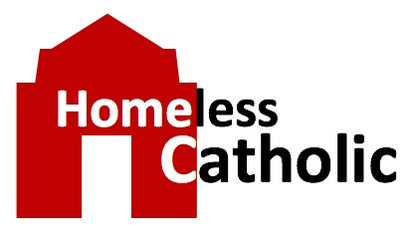See the flow of life
God would prefer that we travel by canoe. If we did, we could see the flow of life that he is creating before us; but we prefer the stability of the wide bottom boat over the rocking narrowness of the canoe. My last year in school was definitely spent in a rowboat, struggling to keep my equilibrium in tumultuous waters. Looking backward as the tangled threads slowly were separated.
Reflection - Canoes
http://www.usccb.org/bible/readings/080716.cfm
Ezekiel 12::1-12
Matthew 18:21-19:1
Same ol', same ol'.
"They have eyes to see but do not see,
and ears to hear but do not hear."
We've heard that song before. Jesus sings it frequently in the Gospels. And, if you're like me, you get tired of hearing it. I would guess that Jesus got tired of singing it. In any event, the words make it clear that God knows the people with whom He's dealing.
Ezekiel begins this chapter with a different song. It, too, is one we've heard before. We hear it in almost all the prophetic books, sometimes repeated frequently. We hear it in the New Testament as well: "The word of God came to John the son of Zechari'ah." (Luke 3:2) It was this song that caught my attention.
What did Ezekiel and these others hear? And how did they hear it? In what manner did God send word to them? Smoke signals? Carrier pigeon? Telegraph? Telephone? E-mail? Was the 'word' written or spoken, or just received telepathically inside their heads? On the one side, we have Ezekiel who says he has received the word of the Lord. On the other, we have those who have ears but hear nothing. People are skeptical and start wondering if they should contact the local asylum when you say, "God spoke to me." Even fellow Christians may be cautious.
God speaks in a variety of ways. In the parable that Jesus tells in this morning's Gospel, God speaks to the man who is heavily in debt; He speaks through the example of the King who is forgiving. The debtor has ears to hear, but does not hear. God also speaks to the debtor's fellow servants, who observe the cruelty of that man toward another servant. They open their eyes to the injustice and report it to the king. In times past God has spoken His protection and provision through pillars of cloud, columns of fire, bread from the sky, the conquest of enemies and tablets of stone. His voice is not limited.
There is a joke about a man trapped on the roof of his house by rising flood waters. He prays fervently that God will save him. Men on a hill holler that they will throw him a lifeline. "No," he says. "God's going to rescue me." The water continues rising. A boat comes by and offers a ride. "No," he says. "God's going to rescue me." The water continues rising. A helicopter spots him and comes down to save him. "No," he says. "God's going to rescue me." The water continues rising, and rising, and rising; and the man drowns. When he gets to heaven he complains to the Lord. "Lord, why didn't you hear my prayer?" "I did," replied God. "I sent you a lifeline, a boat and a helicopter."
We hear the joke and our attention is directed to the man's prayer and God's response, this being the usual conversational follow-up after the story is told. But there is an underlying truth which is far more profound, and which is obscured by its very simplicity. Let me explain with a story of my own.
At the beginning of my last year in the seminary, a couple of incidents made me aware that there were aspects of my life which, in the language of the time, could only be described as phony or unauthentic. The revelation eventually made me conscious of the complex persona I had woven. And it quickly became evident that what was genuine and what waxs phony in my life were impossibly intertwined. Separating them was like trying to untangle two strings, twisted and knotted, and enmeshed through years of being blown and tumbled about together as if in a strong wind. I turned to prayer. "Lord, make me real." The next several months were chaotic as the two strands of my life, the true and the false, struggled to separate. Confusion wears blinders. I had no idea where my life was going. By the end of the year I had left the seminary still enmeshed in the puzzle of determining which life-mask was actually and properly mine. One thing, at least, remained from the few weeks before the havoc ensued. "Lord, make me real. Whatever that means. Make me real."
It's always easier to tell where you've been after you've actually been somewhere. That's because we prefer to sit in life's boat looking backwards. I'm referring, of course, to the image of life as an adventure in which we travel by boat. You sit in the rowboat facing the stern; it's the only practical way to row. Neither the rapids nor the calm stretches are within your line of vision until after you have passed. Low hanging branches and protruding rocks cannot be anticipated. A quick glance over the shoulder gives a brief but limited picture of what lies ahead.
God would prefer that we travel by canoe. If we did, we could see the flow of life that he is creating before us; but we prefer the stability of the wide bottom boat over the rocking narrowness of the canoe. That last year in school was definitely spent in a rowboat, struggling to keep my equilibrium in tumultuous waters. Looking backward as the tangled threads slowly were separated.
Throughout those years and all the years that followed the word of the Lord came to me. It came as a stable job to balance the turmoil of what had preceded. It came with a business position that confronted me with the life experiences of others. His word came as a wife that could deal with my idiosyncrasies. It came as three infant sons who would refresh and rejuvenate and correct my experience of individual development. The word of the Lord came to me in these and a whole variety of other ways; in big things and in little things He was speaking.
Today I can see the people and events I have encountered from a different perspective. I see what I could not see then and hear what I could not at that time understand. God would have preferred that I had taken the canoe. That way, I could have understood when He said "Go right!" Or "Go left!" Instead, I was facing backwards and was always questioning: "Whose right?" Or "Whose left?" Mine or yours? What He said along the way would not have been so muddled if I had been talking to Him face to face. Words are harder to understand when someone is speaking to your back. The word of the Lord came to Steve. It came when I was young. It comes to me now.
Remember the story I told earlier about the man sitting on the roof. I said that it had an underlying and profound truth which was obscured by its very simplicity. The truth is this: Every single thing that is said by anyone at any time, every single thing that is done by anyone at any time, every single thing that happens to any one at any time --- any of these is said, is done, or happens because God wills it. If it is good, then it is directly from God. If it is evil, then God will draw good from it. The Father's purpose, as Paul tells us, is to draw all things together under Christ as head; and his will, his word will not return to him empty.
Why are you here in this room? Why am I here speaking to you? You are here, I am here because the word of the Lord came to each of us. His word came as a desire to be with your friends. It came as a hunger for the camaraderie of the group. It came as a need to worship our God. It came as a hope for satisfying an emptiness. It came as an invitation from another. It may have even have come as a directive from God. "Get up. Set aside your lethargy. Join those who would praise me."
In Paul's letter to the Philippians he says "Not that I have already obtained this [the resurrection] or am already perfect; but I press on to make it my own, because Christ Jesus has made me his own. Brethren, I do not consider that I have made it my own; but one thing I do, forgetting what lies behind and straining forward to what lies ahead, I press on toward the goal for the prize of the upward call of God in Christ Jesus." (Philippians 3:12-14)
I believe the Lord wants us to abandon our rowboats and get in a canoe. He desires that we forget what lies behind and strain forward to what lies ahead. Then, with the goal before us we can more readily hear and understand and know his voice.

